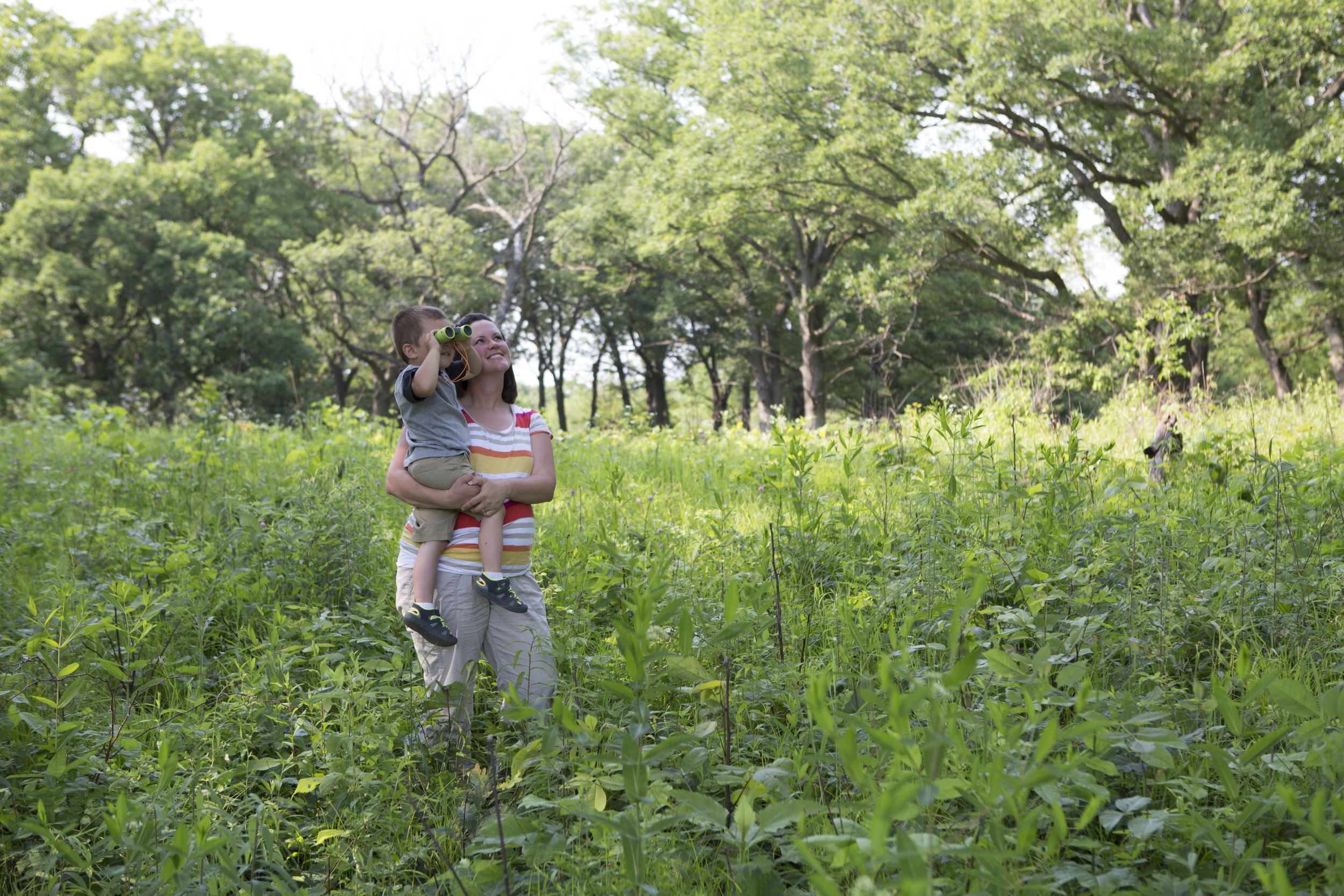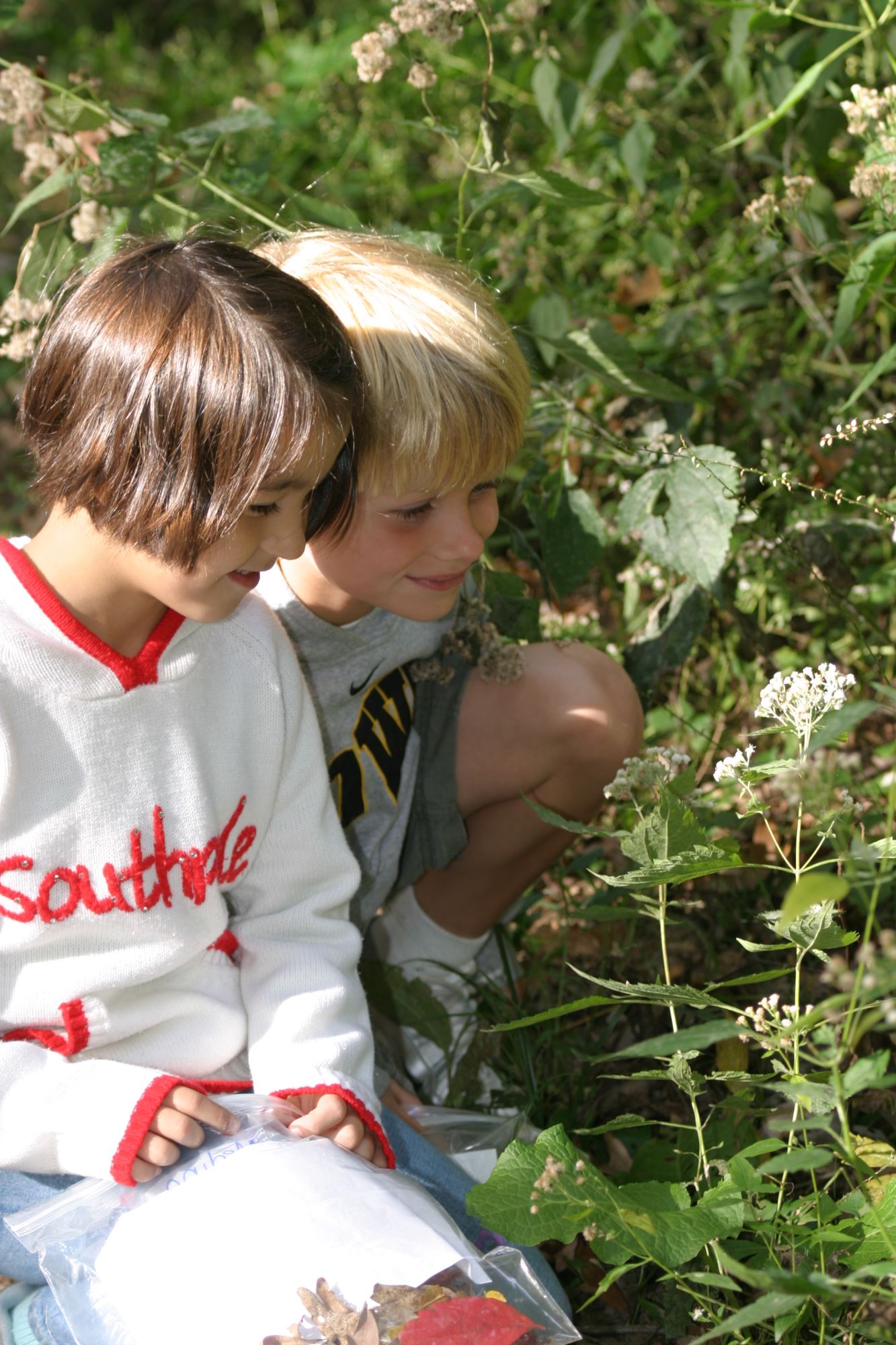Green over Screens: Why Children Should Play Outside
By Mack Swenson on September 21, 2022 in Blog

“Earth and sky, woods and fields, lakes and rivers, the mountain and the sea, are excellent schoolmasters, and teach some of us more than we can ever learn from books.” John Lubbock
Indeed, the wonders of Earth educate and inspire in ways books cannot (not to discount the value of reading, of course). These days, however, it is more applicable to say that nature teaches more than we could ever learn from screens—especially when referring to the nation’s youth. On average, American kids spend 7 hours per day using screens, often substituting screen time for outdoor play. Multiple studies have demonstrated the detrimental effect of this swap—and not just on kids’ appreciation for nature. Spending time outside, and especially playing outside, is vital for all aspects of a child’s development.
Spending time outside helps children develop executive skills.
Children need unstructured time to develop their executive function skills, such as troubleshooting, negotiating and multitasking. When they play outside, they may be forced to make up their own games and problem-solve, which helps develop these skills. The unstructured nature of outdoor play allows children to learn self-reflection, as they have to evaluate the successes and failures of their ideas. Playing outside can also teach children how to approach risk and help them develop the confidence to face risk in all facets of their life. Today’s kids are used to comfortable environments and instant gratification, often provided by screens. The unpredictable nature of the outdoors, therefore, helps children develop resilience in the face of emotional and physical challenges. Particularly among younger children, playing outside helps develop the ability to process a variety of sensory inputs since it engages all five senses—compared to a screen that primarily engages only sight and hearing.
Spending time outside helps children develop social skills.
Inside, smaller spaces can make children feel like they need to compete with others, leading to intimidation and withdrawal from peers and caregivers. When children play in larger outdoor spaces without competitive pressures, they become more comfortable opening up to trusting adults. Outdoor play can also help kids develop an increased awareness of others' feelings. Studies have even shown that children who spend time playing outside are less likely to become bullies. Children also learn to play with others from different backgrounds, especially in community spaces like playgrounds and parks. Even while playing solo, being outdoors helps children build a sense of independence regardless of whether parents are nearby.
regardless of whether parents are nearby.
Spending time outside improves childrens’ mental health and emotional regulation.
Spending time outdoors also improves children's moods and can help them release pent-up energy, leading to fewer problems in indoor settings—particularly among kids with ADHD. Observing nature in a non-focused way has also been shown to decrease stress levels and improve concentration in both children and adults, a concept explained by Attention Restoration Theory. The theory essentially states that spending a great deal of time focusing on one thing, as we often do on computers, tablets and other screens, reduces our capacity to focus, and the natural, easy fascination rendered by spending time outside restores this capacity. One 2019 study also found that increased childhood exposure to fresh air and greenery is associated with better mental health later in life. In the study, kids who grew up in areas with more green space had a?lower risk of developing psychiatric disorders?than their peers who did not.
Spending time outside improves childrens’ physical health.
Children who spend more time outside are less likely to become obese, a classification that applies to more than one in three American children. A study found a direct correlation between a child’s BMI and the amount of time they spend playing outside. Since obesity in children is correlated with asthma, sleep apnea, diabetes and cardiovascular disease, reducing the risk of obesity also benefits a child’s general well-being. Additionally, playing outdoors helps children develop more advanced motor skills than their peers who spend most of their time indoors. The open spaces of the outdoors provide children more opportunities to challenge their physical abilities, leading to increased agility, balance and coordination. Finally, exposure to the sun helps create vitamin D, which is crucial for bone development and the immune system. It also helps regulate a healthy sleep schedule.
Spending time outside leads to an appreciation of nature.
Last but certainly not least, spending time outside, unsurprisingly, develops an appreciation for nature. The impact is drastic: 87% of people who regularly played outside as kids valued nature as adults. Out of that sample, 84% said they still believe taking care of the environment should be a priority. Along that same line, spending time outdoors prompts kids to engage their natural curiosity, especially for science and the environment. This can be supplemented by reading materials and other discover-assisting tools, such as magnifying glasses and binoculars. The planet’s future is in the hands of today’s youth, and if we want them to develop an appreciation for nature, we must create time for them to gaze at the sky, observe animals in their natural habitats and wonder at the functions of plants and mushrooms.
A few recommendations for parents and caregivers: If your child isn’t used to playing outside, simply spending time in the backyard or walking through a neighborhood is an excellent starting activity. Then, gradually scale up to activities in nature parks or on trails. You can also incorporate hobbies into outdoor play, such as sports; bring outdoor toys, board games or educational games; make spending time outside a group activity by inviting family and friends; and schedule time for children to go outdoors, since familiar routines make children more confident to try new things. Finally, go outside with them! You’ll probably find that you benefit just as much as the kids.
Children can learn anywhere, not just in the classroom. The current emphasis might be on using screens for learning, but nature is an equaling deserving—if not more deserving—teacher.